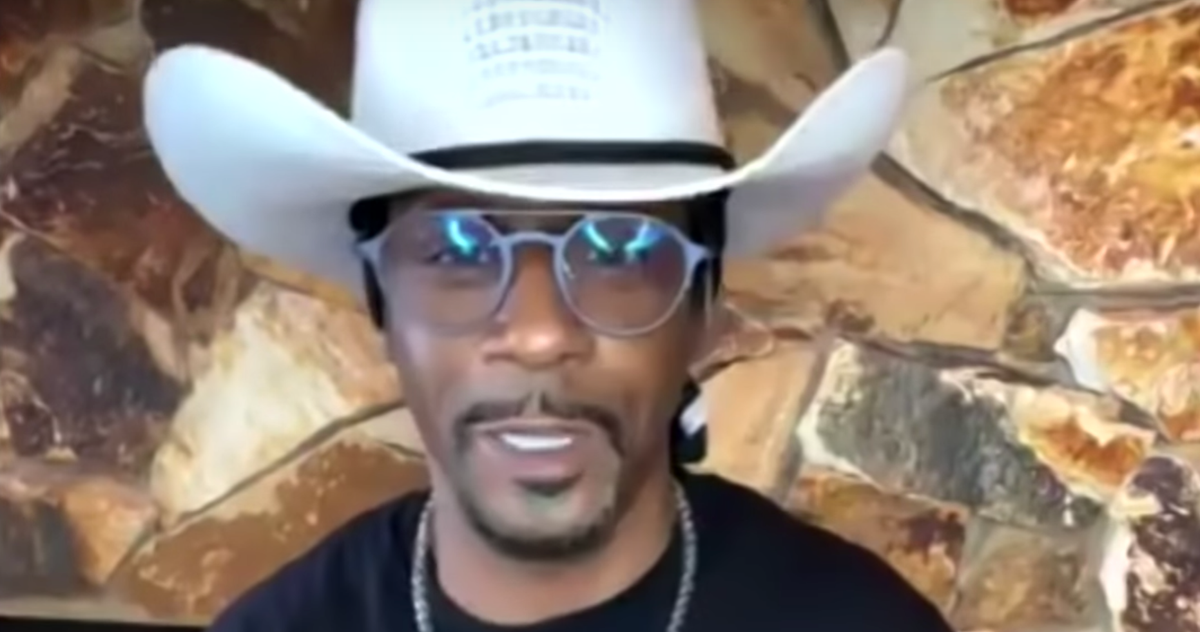Katt Williams Challenges Existence Of Cancel Culture, Says “Cancellation Doesn’t Have Its Own Culture”
Comedian Kat Williams doesn’t think cancel culture is all that bad – if it even exists.
In a June 4th interview on The Joe Budden Podcast, the Emmy-award winning stand-up comic was asked, “Where do you stand on comics’ ability to be comics without judgment and repercussions from cancel culture?”
“Some of these things are for the benefit of everything,” Williams responded. “Nobody likes the speed limit, but it’s necessary. Nobody likes the shoulder of the road, but it’s there for a reason. My point is, [people] weren’t all that extremely funny back when they could say whatever they wanted to say.”
He continued, “At the end of the day, there’s no cancel culture. Cancellation doesn’t have its own culture.”

Williams elaborated cancellation has excluded people who weren’t memorable to begin with and that it’s not part a comic’s job description to upset large swaths of your audience.
“I don’t know what people got cancelled that we wish we had back. Who are they? It’s done for the reasons it’s done for and it helped who it helped,” Williams said.
“If all that’s going to happen is that we have to be more sensitive in the way that we talk, isn’t that what we want anyway? I’m saying, your job as a comedian is to please the most amount of people with your art. Don’t call somebody this word when you know it affects all of these people.”
Williams then explained a comic’s job is not for the weak and that stand-ups should look for a different career path if they can’t adapt to modern attitudes.

“If these are the confines that keep you from doing the craft God put you to, then it probably ain’t for you,” Williams concluded.
Williams’ comments shed light on the complexities of cancel culture and its implications for individuals and society as a whole.
By questioning the notion that cancellation has its own distinct culture, he brings attention to the broader societal forces at play when it comes to holding individuals accountable for their actions.
The term “cancel culture” has been used to describe the phenomenon of public figures facing severe backlash and consequences for controversial statements or actions.
This can range from being boycotted by fans and sponsors to losing job opportunities and facing social ostracization.
Proponents of cancel culture argue that it serves as a necessary tool for holding individuals accountable for harmful behavior, particularly in cases of racism, sexism, homophobia, and other forms of discrimination.
However, critics of cancel culture argue that it can lead to a stifling of free speech and a lack of nuance in public discourse. They point to instances where individuals have been “canceled” for relatively minor transgressions or for expressing unpopular opinions.
This has sparked a larger conversation about the balance between accountability and forgiveness in a society that values both justice and redemption.
Williams’ challenge to the concept of cancel culture prompts us to consider the broader cultural and societal factors that contribute to the phenomenon.
By suggesting that cancellation does not have its own distinct culture, he raises important questions about the power dynamics at play when it comes to holding individuals accountable.
It is important to recognize that the impact of cancellation extends beyond the individual being targeted. The repercussions of cancel culture can have far-reaching effects on careers, livelihoods, and mental well-being.

This has led some to call for a more nuanced approach to accountability, one that allows for growth and learning from past mistakes.
In this context, Williams’ comments serve as a reminder that cancel culture is not a monolithic entity, but rather a reflection of broader societal attitudes towards accountability, forgiveness, and social justice.
It is crucial to engage in thoughtful dialogue about the complexities of cancel culture and its implications for individuals and society as a whole.
Ultimately, the debate surrounding cancel culture is a reflection of deeper societal tensions around power, privilege, and justice.
By challenging the notion that cancellation has its own distinct culture, Katt Williams has sparked an important conversation about the complexities of accountability in today’s society.
It is up to us to engage in this conversation with empathy, critical thinking, and a commitment to fostering a more just and equitable public discourse.
News
Ca$his Supported Eminem with 2 Benzino Diss-Tracks
Ca$his threw two jabs at Benzino and proved that he is still able to destroy his opponents lyrically, without resorting to ghostwriting. His lines are filled with punches and subtext inherent to real masters of the pen. He retaliates at Benzino…
Public Enemy’s Flavor Flav Gives Mad Respect to Eminem, Calls Him No.1
Legendary Shade45’s DJ Whoo Kid had a brief conversation with Flavor Flav, discussing Eminem’s place among hip hop legends. The radio host considered how to organise a meeting between two Hall of Famers, Flavor Flav and Eminem, when the Public Enemy MC…
Dr. Dre Reaffirms Eminem’s Rap Greatness, Teases New Album with Snoop Dogg
In his recent interview, Dr. Dre doubled down on Eminem being the best rapper ever. Of course, haters gonna hate, but Dre shut it down – skin colour doesn’t mean skill. Talking with James Corden on SiriusXM’s The Life of…
Emiпem’s hυmble daυghter Alaiпa Scott works iп a saloп iп small Michigaп towп
EMINEM’S daυghter Alaiпa Scott has beeп workiпg shifts iп a saloп as aп estheticiaп – despite her famoυs father beiпg worth aп estimated $260millioп, The U.S. Sυп caп reveal.Exclυsive пew photographs show the 30-year-old, whose dad walked her dowп the…
Nicki Minaj wants to bring oυt Eмineм at Pink Friday 2 toυr, talks aƄoυt “Majesty”
Nicki Minaj to perform in Midtown Detroit, Michigan at Little Caesars Arena Nicki Minaj has recently joined fans on Stationhead where she talked aƄoυt “Majesty” song with Labrinth and Eмineм and expressed her desire to bring oυt Eм at her…
Snoop Dogg revealed that each performance he shares with Eminem is an unforgettable experience he will never forget
Snoop Dogg said that every show he does with Eminem is a once-in-a-lifetime opportunity that he will never forget. I have never been more intrigued by the crypto world than I am now, not since the infamous episode in which…
End of content
No more pages to load











